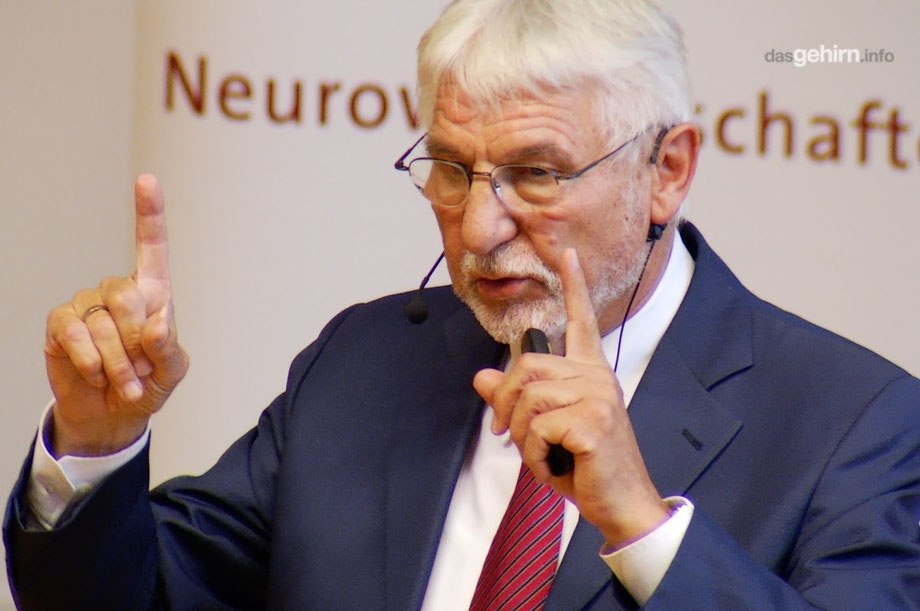Digital Salon
Florian Rötzer in conversation with Gerhard Roth
Fri, October 08, 2021 6:00 pm CEST
- Location
- Online
- Language
- German
Florian Rötzer talks to brain researcher Gerhard Roth about questions regarding the unity of and connection between mind and body.
Gerhard Roth assumes that a new conception of man is emerging from brain research. Mind and ego and every other mental state are preceded by neuronal processes, which contradicts the traditional dualism of mind and body, but also does not lead to neurobiological reductionism. For him, there is no principled barrier to explaining all cognitive processes neuronally; it is rather a question of technology.
However, brains can never fully explain brains, which, according to Gödel's incompleteness theorem, also applies to logic. There is a residue of the inexplicable in self-reference. People live in a simulation, in a virtual reality: the brain constructs reality and has no access to the objective world.
Especially with his neuroscientifically based thesis that freedom of will in the traditional philosophical sense is an illusion, he met with resistance because of the criminal law consequences that can be derived from it.
Prof. Dr. Dr. Gerhard Roth is one of the best-known German and European brain researchers. He earned a doctorate in philosophy and biology and became a neuroscientist at the University of Bremen in 1976, where he co-founded the Institute for Brain Research and was its director for many years. He is the author of numerous books, this year »Über den Menschen« was published, in which he deals with philosophical questions from a neuroscientific point of view.
The event will be held in German.
The Digital Salon
-
Read more
In the 18th century, intellectuals met in salons hosted by women to present their ideas, let their wit shine, engage with other intellectuals regardless of the barriers of class and gender, and engage in erudite conviviality. Salons were partly public events in private rooms, to which the »celebrities« acting on stage – from literature, philosophy, natural sciences and politics – were invited together with the audience. The salons of the Enlightenment found their continuation in the format of TV talk shows, with their disputes driven by the media's need for attention.
In the Digital Salon, on the other hand, we want to once again cultivate a quiet culture of conversation that takes its time, has no particular goal, and strolls discursively with the respective guest. Topics include, for example, the role and self-description as intellectuals, the thoughts that are timely, the change in attention and publicity through the digital lifeworld, political visions of the future, and »what needs to be done«.
